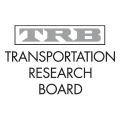Vermont Statewide Resilience Modeling
Corresponding Author: Norman Marshall, Smart Mobility Inc.
Presented By: Roy Schiff, Milone & MacBroom
Abstract
The damage to Vermont’s surface transportation system caused by major and minor floods over time has illustrated the vulnerability of road segments, bridges, and culverts to the effects of river flooding, erosion, and deposition. Flood recovery along the transportation system is a major annual expense for the State of Vermont.
This project develops improved methods and tools to assess and mitigate flood risks to Vermont’s transportation system. A new screening method has been developed to evaluate vulnerability of closure or failure for roads, bridges, and culverts. Transportation modeling has been conducted to identify the most critical locations within the network based on simulated damages. The main goal of the project is to identify high risk road segments and crossing structures where both vulnerability and criticality are high to guide Vermont Agency of Transportation infrastructure planning and capital expenditure programming. Mitigation alternatives will be established to reduce risks.
The Vermont Transportation Resiliency App is under development to display the screening results. The App will allow a high-level view for planning at the watershed or sub-watershed levels. Data can be unpacked to provide local information to begin mitigation at transportation assets and river reaches. Upon completion of this project the Resiliency App will be accessible to municipal, state and regional government agencies.

